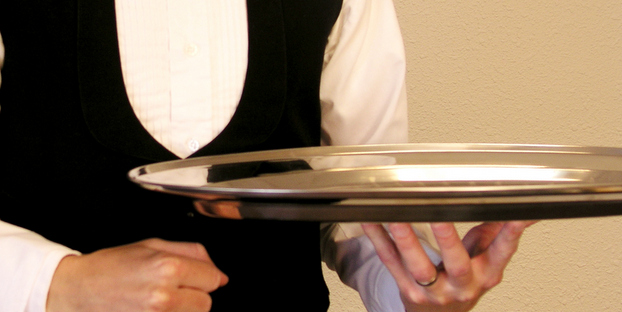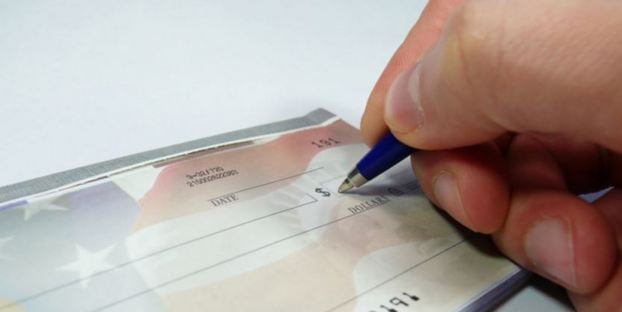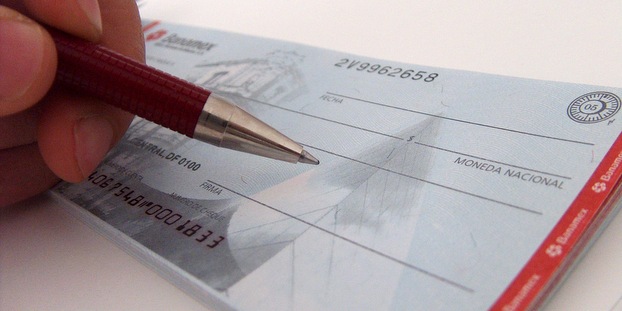Tips
Front-of-house employees generally receive tips for service as part of their overall compensation. Tips or gratuities that are provided voluntarily by the customer are the property of the employee, and employers are legally barred from keeping any portion of those funds. It is important to have a clear and definite tip policy in place for front-of-house staff before opening, as this area can result in a lot of liability.
One of the first issues to address is what kind of employees are eligible to receive tips. Tips can either be given directly to the server or beertender or can be pooled together into a common fund that is then distributed evenly to designated positions. The FLSA permits back-of-house individuals – dishwashers, cooks, chefs, and janitors – to participate in a valid tip pool, but numerous state laws only permit individuals who are directly involved in table service to participate in a tip pool. Oregon, Massachusetts and California are among the states with specific laws about tip pooling and tip sharing. Exempt managers should almost never be part of the tip pool – if they are providing direct table service as a primary job duty, they likely should not be designated as exempt.
Restaurants and bars are also eliminating tips in some instances, as a way to manage rising labor costs that come with higher minimum wage levels. Many establishments are raising menu prices or imposing a mandatory customer service fee in lieu of individual, voluntary customer tips. Mandatory service fees are considered to be the property of the employer, rather than the employee. Employers are therefore able to use the increased revenue from increased sales or mandatory service fees as bonus amounts, available to all staff (including back-of-house employees and managers), or as additional revenue for the business itself. While these policies have been controversial, they are generally legal under federal and state laws and are gaining popularity with many restauranteurs and food/beverage establishments.
Whatever tip policy you adopt, keep in mind that tip monies that belong to the employees must be timely paid. This is not an issue with cash tips, but can be a significant issue with credit card tip payments. State laws generally require tips to be paid no later than the end of the designated pay period, so proactively address how you will manage your cash flow to ensure large credit card tips are timely and properly paid.
RELATED: Craft beer trademarks — a legal lesson
Minimum Wage for Tipped Employees
In some instances, bars and restaurants are able to use tip compensation as part of the minimum hourly wage to be paid to non-exempt employees (this is called a “tip credit”).
The FLSA permits employers to pay non-exempt, tipped employees only a portion of the minimum wage – at the time of this article, $2.13 per hour – so long as the employee retains all tips and customarily and regularly receive more than $30 per month in tips. For pay periods where the tips plus the $2.13 direct wage do not meet the federally required minimum wage, employers must make up the difference through a higher direct wage.
Some states – Utah, Texas and New Jersey among them – have adopted this same model, but other states – for example, California, Oregon, Washington and Minnesota – require payment of a full minimum wage with tip credit permitted. Check your state laws carefully to determine if you are permitted to reduce the hourly wage for non-exempt tipped employees.
Employers should also keep in mind the 80/20 rule – if a tipped employee spends more than 20 percent of their time doing work that does not generate tips, he or she should receive the full minimum wage for that time, even if a tip credit system is legally permissible and in place.
Walk-Outs/Breakage/Shortages
Front-of-house employees often deal with issues related to cash and profit loss – customers walking out without paying, breakage of glasses and dishware; and cash register shortages.
The FLSA does not permit an employer to deduct the cost of a walk-out, breakage or shortage from employee wages, if such deduction would make the wage fall below the required minimum wage for a non-exempt employee. Also keep in mind that employers are never permitted to retain any portion of a tipped employee’s voluntarily-given gratuity. If the deduction is going to be taken primarily from the employee’s tips for that day, that deduction is by its very nature illegal, even if the employee is still walking away making more than the minimum hourly wage for all hours worked.
State laws have been surprisingly silent on deducting employer losses from front-of-house employee wages, but several states – California, New York, and Massachusetts – consider these kinds of losses to be an ordinary employer expense and permit no deductions of this kind whatsoever.
Uniforms
Front-of-house staff almost always are required to wear branded gear or a common uniform during their work shifts. This makes it easy for customers to identify employees and also reinforces the branding and marketing of your business.
The FLSA treats deductions from employee pay for the cost of uniforms and/or cleaning of uniforms under the same rule as customer walk-outs, breakage and cash shortages. If the cost would result in the employee making less than the required hourly minimum wage, it is not permitted. State laws are generally stricter. For example, in New Jersey employers cannot charge or require an employee to buy a uniform with a company logo, and in California, employers cannot charge employees for any apparel or accessories of distinctive design and color. It is generally a best practice, and a good motivating technique, to provide at least 1 to 2 pieces of branded gear to front-of-house employees free of charge.
RELATED: Beyond beer: Merchandise enhances the experience
Front-of-house employees can be some of the most rewarding, and challenging, staff members in your brewery. Having clear and established job duties and roles, tip policies and policies on acceptable and prohibited deductions will make compensation of these critical employees easier and less subject to costly wage and hour violation claims. Always consult an attorney about your own state laws when developing front-of-house compensation strategies.
This in-depth feature was contributed by the super smart attorneys with The Original Craft Beer Attorneys. If you haven’t yet, check out their new book.






Mike Holt liked this on Facebook.
RT @CraftBrewingBiz: Brewery compensation series part 3: Paying front-of-house staff https://t.co/HZp93onONh Great stuff via @CraftBeerAttny
Brewery compensation series part 3: Paying front-of-house staff https://t.co/w0OWYzWiQC via @craftbrewingbiz
#CraftBeer #CraftBrewing #Beer #BeerBiz Brewery compensation series part 3: Paying front-of-house staff https://t.co/qkZkMBURGo